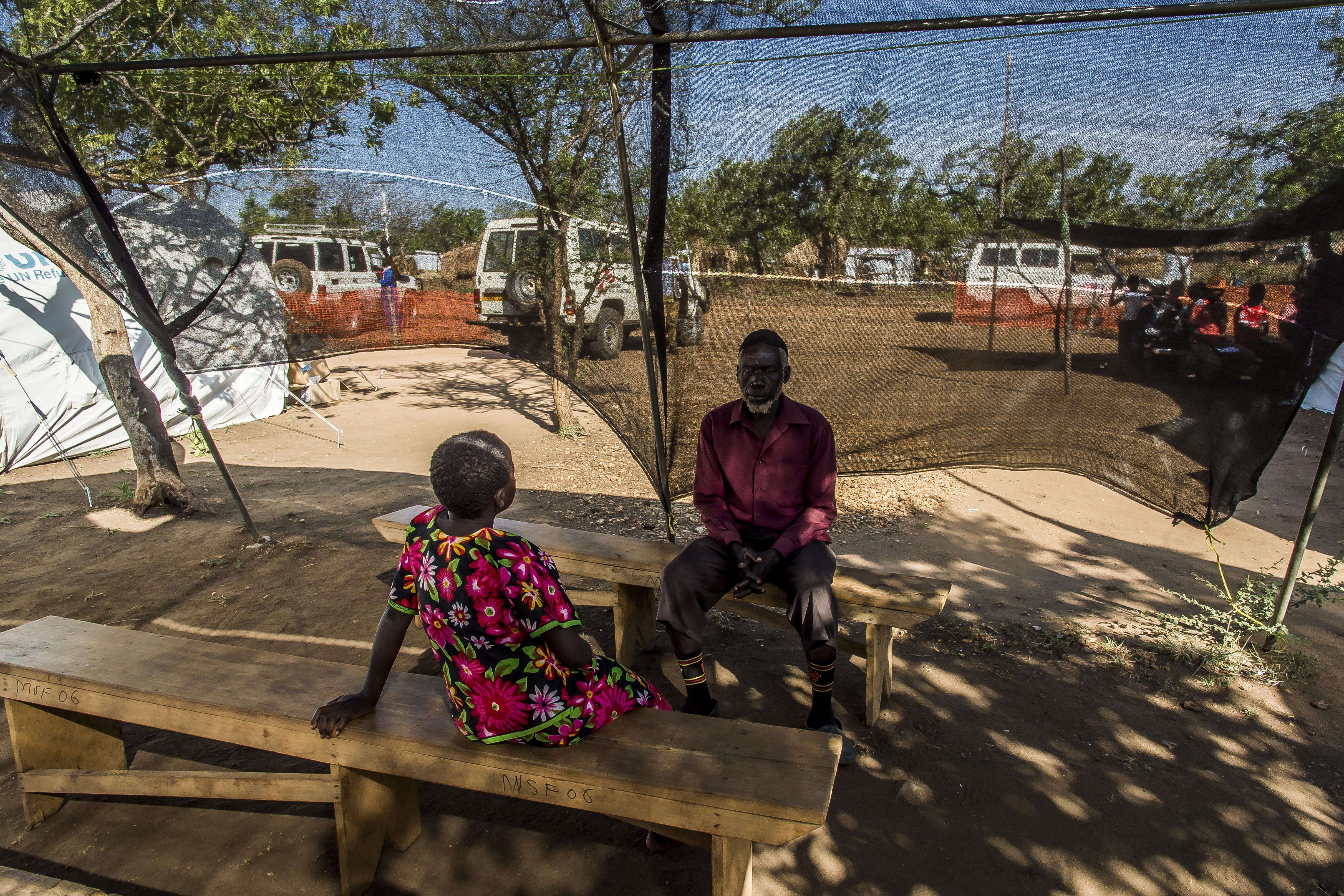Hundreds of thousands of people who fled intense violence in South Sudan now live in refugee settlements like Bidi Bidi and Imvepi in neighboring Uganda. Despite this massive influx, the international humanitarian response is still woefully insufficient, especially when it comes to treating survivors of sexual and gender-based violence (SGBV). Since March 2017, Doctors Without Borders/Médecins Sans Frontières (MSF) has provided care for survivors of SGBV in Bidi Bidi and launched similar services in Imvepi in May. Here, MSF midwife activity manager Marie-Anne Henry, who has been working in both settlements since April 2017, discusses the situation.
Why did MSF start its SGBV activities?
Many of the refugees from South Sudan have gone through high levels of violence, including sexual violence. They were raped or sexually assaulted, and many also witnessed their families being killed or raped. Some people have been raped several times.
It’s very important for them to get first aid and psychological support as soon as possible, but many survivors do not find it easy to talk about what they have experienced. Many of them are traumatized and scared. MSF started an SGBV clinic to ensure a safe and neutral space where survivors of sexual violence can access timely medical and psychological care.
Before MSF started its activities, when survivors were identified by other humanitarian actors, cases were first reported to the Ugandan police, and people had to go through a long and uncomfortable process before getting treatment and support. MSF does not take cases to the police unless our patients want to do so, and we prioritize providing treatment before it becomes too late.
What SGBV care services does MSF provide?
At our SGBV clinic in Imvepi refugee settlement, where new arrivals are taken for registration, we provide first aid treatment and psychological care. In the consultation, we test for HIV and, if the assault happened within 72 hours, we give post-exposure prophylaxis (PEP) to prevent infection as well as emergency contraception to prevent unwanted pregnancies.
If the patient is found to be pregnant and wishes for a termination, we refer [her] to a regional clinic when it’s less than 16 weeks of pregnancy. If it’s over 16 weeks ... we refer [the patient] to the antenatal care clinic we run in Bidi Bidi. We have midwives specifically trained for SGBV care, as well as psychologists and counselors. We also closely collaborate with the MSF mental health clinic in Bidi Bidi, as many of our patients need mental health support for symptoms such as PTSD (post-traumatic stress disorder) and depression.
We have both female and male patients, and male clinical officers are available if the male patients prefer them. We refer complicated cases and children to our central referral center in Bidi Bidi. As it’s important for victims to get treatment as soon as possible, we also provide training to other medical actors working in the transit centers where buses depart for the refugee settlements. We donate medicines and train health workers on how to screen, identify, and handle counseling before referring cases to Imvepi.
What we are doing is making a pathway for people, from their arrival in Uganda to their relocation in refugee settlements, so that they receive the necessary care. So far we have treated 49 patients, including 3 men and 20 children under 18 years old. The youngest patient we saw was a five-year-old boy who was raped and physically assaulted multiple times in South Sudan.
How does MSF find survivors of SGBV?
At the reception center in Imvepi, we are doing a sample survey to collect information on where refugees are from, why they fled, and if they witnessed or experienced violence. It’s possible to identify survivors of SGBV through this survey. We also do a daily round with other actors to see if they have encountered any SGBV cases.
Another way is word of mouth. Those who visit our clinic tell their community about us. We also implement bi-weekly community awareness activities to sensitize key people in the community so they can help spread the word about our services. Working closely with our health surveillance teams also helps us find the victims, as they encounter those cases during their activities to gather medical information about malnutrition, morbidity, and mortality.
What are the main challenges that MSF is facing?
To prevent HIV and unwanted pregnancies, survivors should be treated within 72 hours after the assault. If people were raped in South Sudan or at the border, those 72 hours easily pass as they make their journey or while they [are waiting to] go through registration and screening. Even once they arrive at the reception center they have to queue for registration, food, and non-food item distribution. Going to the SGBV clinic isn’t always seen as a priority.
Another challenge is following up with patients after they are settled. These refugee settlements are vast and, because some people move from one zone to another, it is difficult to figure out who is settled where. We are now working with our surveillance teams on how to improve our capacity for follow up. In general terms, we are seeing a lack of sufficient services available for SGBV survivors. An increased focus and additional capacity should be allocated for protection and essential psychological and medical care for sexual violence.
"What we are doing is making a pathway for people, from their arrival in Uganda to their relocation in refugee settlements, so that they receive the necessary care."
Marie-Anne Henry




